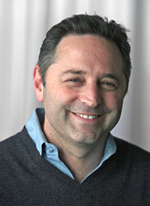
NEW YORK — Like so many of you, I remember exactly where I was that November day when I heard the news. I got two phone calls, one after the other, from a friend. The first: “Rabin’s been shot.” The second, minutes later: “He’s dead.”
I had returned to the US to start law school in September, after two years living in Jerusalem. I didn’t know it then, but those years were a golden age for Israel. I’d gone to Jerusalem to start rabbinical school. But really, that was just an excuse. I wanted to be in Israel for what seemed then like the great denouement of modern Jewish history: the end of the one hundred year old war between Arabs and Jews. Peace. A new story. And so, shortly after arriving, I dropped out of the seminary (thank you, HUC for forgiving those student loans; I’m still grateful). I got a job, went to ulpan, made Israeli friends, and lived in the most exciting place in the world at the most extraordinary time. Everything seemed possible after that handshake on the White House lawn. Peace with Jordan. Gulf State “interest offices” opening in Tel Aviv. Israel, confident, strong and brave, extending its hand to the world.
And at the center of it all, Yitzhak Rabin. The unlikely and indispensable peacemaker. He was the essence of that Israel. As a friend of mine once said, “My family isn’t a Labor Party family; we’re not a Likud Party family. We’re a Rabin Party family.” A lot of Israelis felt that way. However skeptical, however uncertain, they were willing to follow him. Even then, I remember there was something funny about it: he was such a normal, gruff, even taciturn presence, while at the same time, a heroic figure, completely larger than life. When President Clinton visited Israel, flags from the two countries lined the highway and the streets of Jerusalem. Their mutual affection make everbody smile. I felt so proud to be an American living in Israel.
But even during those halcyon days there were warning signs. Right wing rallies where demonstrators held signs with Rabin and Peres in kaffiyas and SS helmets. It felt sinister, even ominous, but also desperate and a bit hysterical. We worried about him, but it never occurred to us that the threat was so real. It must have taken a terrible toll on him. One day, walking with a friend to ulpan, the Prime Minister’s motorcade zoomed by. I didn’t look in time, but my friend saw Rabin, hunched forward, smoking a cigarette. “How did he seem?” I asked her. “Tired,” she said.
Shortly after that, I returned to America. And eight weeks later, everything changed. Even now, twenty years on, I still feel the heartache I felt that day. But I know that my time in that the Israel of Yizhak Rabin forged my love and commitment to the place, and it informs why I do what I do today. Last week, my friend MK Merav Michaeli told the NIF community that she did not believe that the current situation in Israel was irreversible. I agree with her. It’s the lesson I take from my time in Rabin’s Israel. Yiheyeh tov. Things will be better. Our job is to work to make it so.
*
Preceding provided by New Israel Fund